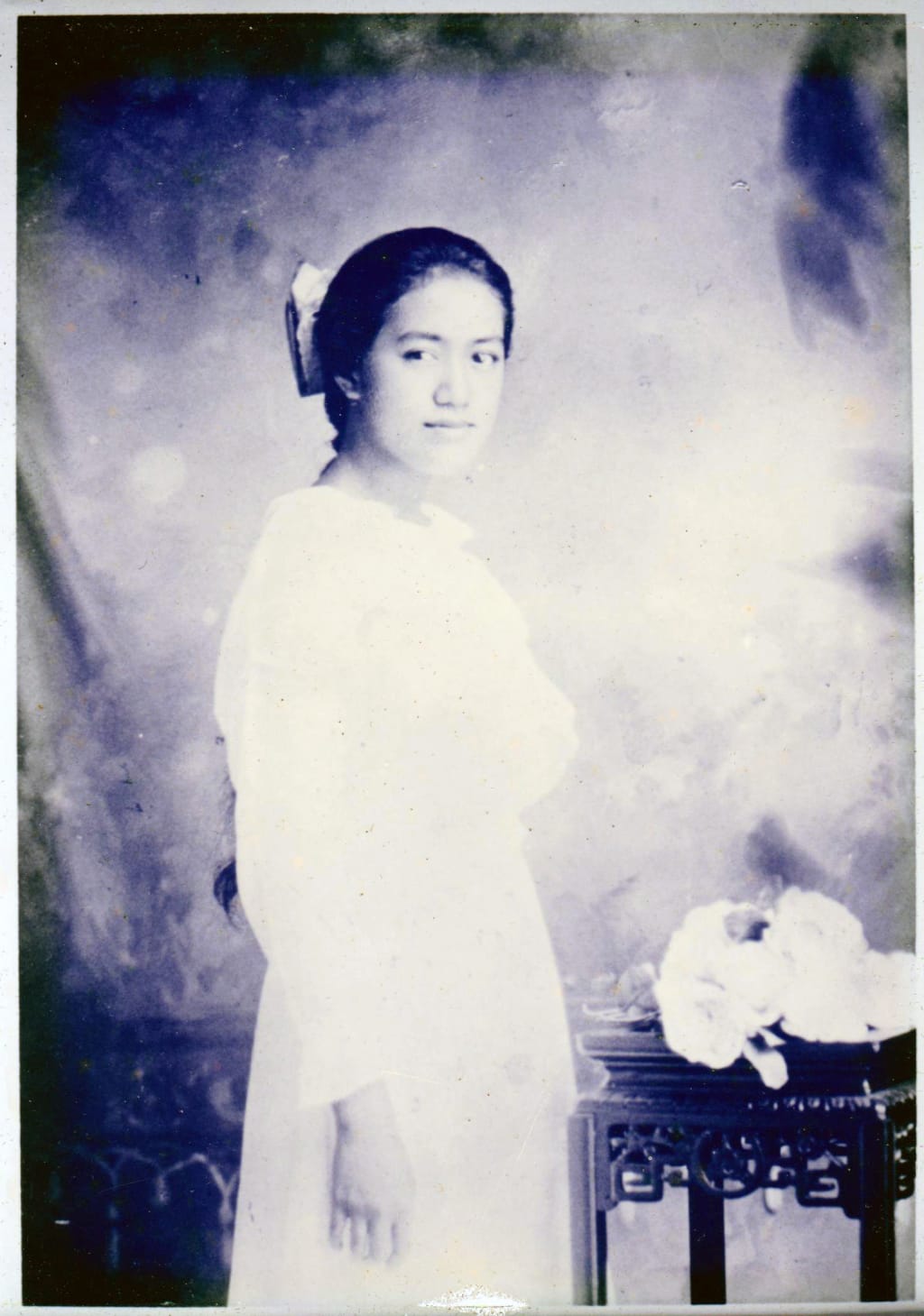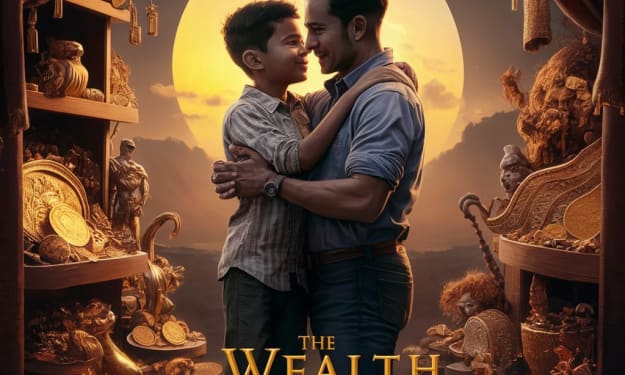The Story of Violet
My Hawaiian Grandma

Her name was Violet Kawaikoeahiokekuahiwi Wong Hoe and she was my father’s mother. Born in 1900 to a full-blood Hawaiian woman and a Chinese laborer who came to Hawaii to work on a sugar plantation, Grandma was the most influential person in my life. She taught me what it meant to be Hawaiian. More importantly, a Hawaiian woman.
Grandma was tough stuff, born just seven years after a group of American businessmen illegally overthrew the Hawaiian monarch, Queen Liliuokalani, and the sovereign Kingdom of Hawaii.
At five years old, she cried on a boat dock as her father jumped onto a ship to return to China. His contract with the plantation had ended, and he probably had a wife and children back home. She never heard from him again.
She remembered the day when she was nine. Some men came to her house and dragged her mother away, kicking and screaming. She never saw her mother again. And as Hawaiians of the day were taught, she never talked about it.
Her mother had been put on a boat to Kalaupapa, Molokai where she was checked into the leper colony for Hawaiian citizens and never allowed away from that isolated spot again. She died there and we’ll never know if she ever had leprosy.
In the early 1900’s, Hawaiians were routinely arrested and taken to Kalaupapa on a whispered suspicion that the spot on their face was leprosy. Kalaupapa is a beautiful but God-forsaken place surrounded by cobalt blue ocean and sheer cliffs that humans couldn’t escape.
Grandma finished high school, married my grandfather, and had 12 children without ever seeing the inside of a hospital room. Orphaned at a young age, Grandma had an intrepid maternal instinct and always faced forward.
But on top of that, she had a paying job! My grandfather was the jailer at the Hilo jail on the eastern side of the Big Island, and she was what they called the ‘matron’. They lived in a house on the jail grounds and she took care of the women and girls who dared to commit such atrocities as running away from home, public drunkenness, or worse yet, prostitution. She nursed her babies while overseeing the meals for both the male and female inmates, and speaking in hushed tones to the women that society had now locked up. It was during this time, sitting at her feet, that I heard snippets of what would become my how-to manual as a native woman.
“Never forget you are Hawaiian…your ancestors settled here in the first canoes…they suffered.…you need to finish school…you will feel better about yourself when you get a job, work is a blessing…stand strong for your children…take care of your mama and papa…every payday, put away some money…every woman must have some money of her own…don’t believe everything you hear…we have to stick together…let no man hit you…keep your body clean…pray every day…when you are old, nothing will seem as bad as it does now.”
Grandma was thrifty and frugal. She didn’t need to get 5 cents back on a bottle to make her recycle. She lived sustainability. When she caught a fish, she ate every bit of it including the eyeballs. She didn’t believe in waste, and she never wasted a minute either. Somehow between raising 12 kids, counseling women inmates and feeding the male ones, she learned how to make things. She sewed, crocheted, quilted, knitted, baked bread, canned and preserved. She knew which type of fish could be caught where, and she gathered the ocean’s bounty and ate it all – opihi (limpet), limu (seaweed), pipipi, vana. If someone caught too much fish in a day, she gave away some and dried the rest.
Her favorite meal was some dried ahi, chili pepper water, a little limu on the side, and a bowl of taro poi.
Grandma, being half-Chinese, would never have thought of herself as a dragon. And yet, in the Chinese culture, a dragon represents wisdom, power, dignity, fertility and is the ultimate good luck sign. For me, it was my good luck having her as my grandmother.
Grandma died just a few months short of her 90th birthday. As the Gods would have it, she never got sick. She just went to sleep one night and woke up in heaven.
I’d like to think her parents and other loved ones were there waiting for her with a plate of dried ahi, chili pepper water, a little limu on the side, and a bowl of taro poi.
About the Creator
Stephanie Launiu
Stephanie Launiu is a Native Hawaiian writer enjoying life on a live volcano. She shares thoughts and stories from her little corner of Polynesia.
Her compilation of visuals about Hawaii is at: https://www.pinterest.com/hawaiianmania/_saved/






Comments (1)
What an incredible woman- a limitless flowing river. Really enjoyed and honoured to have read this.